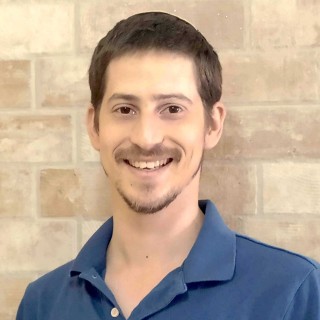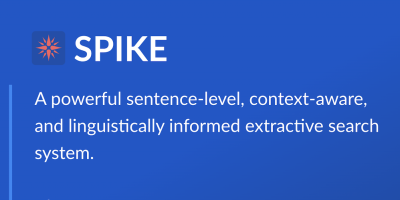AI2 ISRAEL
About
The Allen Institute for AI Israel office was founded in 2019 in Sarona, Tel Aviv. AI2's mission is to contribute to humanity through high-impact AI research and engineering.

AI2 Israel continues our mission of AI for the Common Good through groundbreaking research in natural language processing and machine learning, all in close association with the AI2 home office in Seattle, Washington.
Our Focus
The focus of AI2 Israel is bringing people closer to information, by creating and using advanced language-centered AI. As a scientific approach, we believe in combining strong linguistics-oriented foundations, state-of-the-art machine learning, and top-notch engineering, with a user oriented design.
For application domains, we focus on understanding and answering complex questions, filling in commonsense gaps in text, and enabling robust extraction of structured information from text. This is an integral part of AI2’s vision of pushing the boundaries of the algorithmic understanding of human language and advancing the common good through AI.
AI2 Israel also enjoys research relationships with top local universities Tel Aviv University and Bar-Ilan University.
Team
 Yoav GoldbergResearch Director, AI2 Israel
Yoav GoldbergResearch Director, AI2 Israel Ron YachiniChief Operating Officer, AI2 Israel
Ron YachiniChief Operating Officer, AI2 Israel Dan BareketResearch
Dan BareketResearch Smadar CohenOperations
Smadar CohenOperations Ben EyalEngineering
Ben EyalEngineering Tom HopeResearch
Tom HopeResearch Menny PinhasovEngineering
Menny PinhasovEngineering Mark PolakEngineering
Mark PolakEngineering Sigal RahamimovEngineering
Sigal RahamimovEngineering Micah ShlainEngineering
Micah ShlainEngineering Gabi StanovskyResearch
Gabi StanovskyResearch Hillel Taub-TabibResearch & Engineering
Hillel Taub-TabibResearch & Engineering Aryeh TiktinskyResearch & Engineering
Aryeh TiktinskyResearch & Engineering
Current Openings

Research Areas
DIY Information Extraction
Data scientists have a set of tools to work with structured data in tables. But how does one extract meaning from textual data? While NLP provides some solutions, they all require expertise in either machine learning, linguistics, or both. How do we expose advanced AI and text mining capabilities to domain experts who do not know ML or CS?
Learn more about DIY Information ExtractionQuestion Understanding
The goal of this project is to develop models that understand complex questions in broad domains, and answer them from multiple information sources. Our research revolves around investigating symbolic and distributed representations that facilitate reasoning over multiple facts and offer explanations for model decisions.
Learn more about Question UnderstandingMissing Elements
Current natural language processing technology aims to process what is explicitly mentioned in text. But what about the elements that are being left out of the text, yet are easily and naturally inferred by the human hearer? Can our computer programs identify and infer such elements too? In this project, we develop benchmarks and models to endow NLP applications with this capacity.
Learn more about Missing ElementsSPIKE is a powerful sentence-level, context-aware, and linguistically informed extractive search system. Try SPIKE over one of our provided datasets.
Try the demo

SPIKE is a powerful sentence-level, context-aware, and linguistically informed extractive search system. Try SPIKE over one of our provided datasets.
Try the demoRecent Papers
Making Retrieval-Augmented Language Models Robust to Irrelevant Context
Ori Yoran, Tomer Wolfson, Ori Ram, Jonathan BerantICLR • 2023 Retrieval-augmented language models (RALMs) hold promise to produce language understanding systems that are are factual, efficient, and up-to-date. An important desideratum of RALMs, is that retrieved information helps model performance when it is relevant…Are Layout-Infused Language Models Robust to Layout Distribution Shifts? A Case Study with Scientific Documents
Catherine Chen, Zejiang Shen, Dan Klein, Gabi Stanovsky, Doug Downey, Kyle LoFindings of ACL • 2023 Recent work has shown that infusing layout features into language models (LMs) improves processing of visually-rich documents such as scientific papers. Layout-infused LMs are often evaluated on documents with familiar layout features (e.g., papers from the…From Centralized to Ad-Hoc Knowledge Base Construction for Hypotheses Generation.
Shaked Launer-Wachs, Hillel Taub-Tabib, Jennie Tokarev Madem, Orr Bar-Natan, Yoav Goldberg, Y. ShamayJournal of Biomedical Informatics • 2023 Objective To demonstrate and develop an approach enabling individual researchers or small teams to create their own ad-hoc, lightweight knowledge bases tailored for specialized scientific interests, using text-mining over scientific literature, and…Answering Questions by Meta-Reasoning over Multiple Chains of Thought
Ori Yoran, Tomer Wolfson, Ben Bogin, Uri Katz, Daniel Deutch, Jonathan BerantEMNLP • 2023 Modern systems for multi-hop question answering (QA) typically break questions into a sequence of reasoning steps, termed chain-of-thought (CoT), before arriving at a final answer. Often, multiple chains are sampled and aggregated through a voting mechanism…Lexical Generalization Improves with Larger Models and Longer Training
Elron Bandel, Yoav Goldberg, Yanai ElazarFinding of EMNLP • 2022 While fine-tuned language models perform well on many tasks, they were also shown to rely on superficial surface features such as lexical overlap. Excessive utilization of such heuristics can lead to failure on challenging inputs. We analyze the use of lexical…
Recent Press
Artificial-intelligence tools aim to tame the coronavirus literature
June 9, 2020
מערכת בינה מלאכותית עברה בהצטיינות יתרה מבחן במדעים של כיתה ח' (Artificial Intelligence System Cum Laude Passed 8th Grade Science Test)
September 6, 2019
המחיר המושתק של בינה מלאכותית (The secret price of artificial intelligence)
August 12, 2019
Allen Institute for Artificial Intelligence to Open Israeli Branch
May 20, 2019












